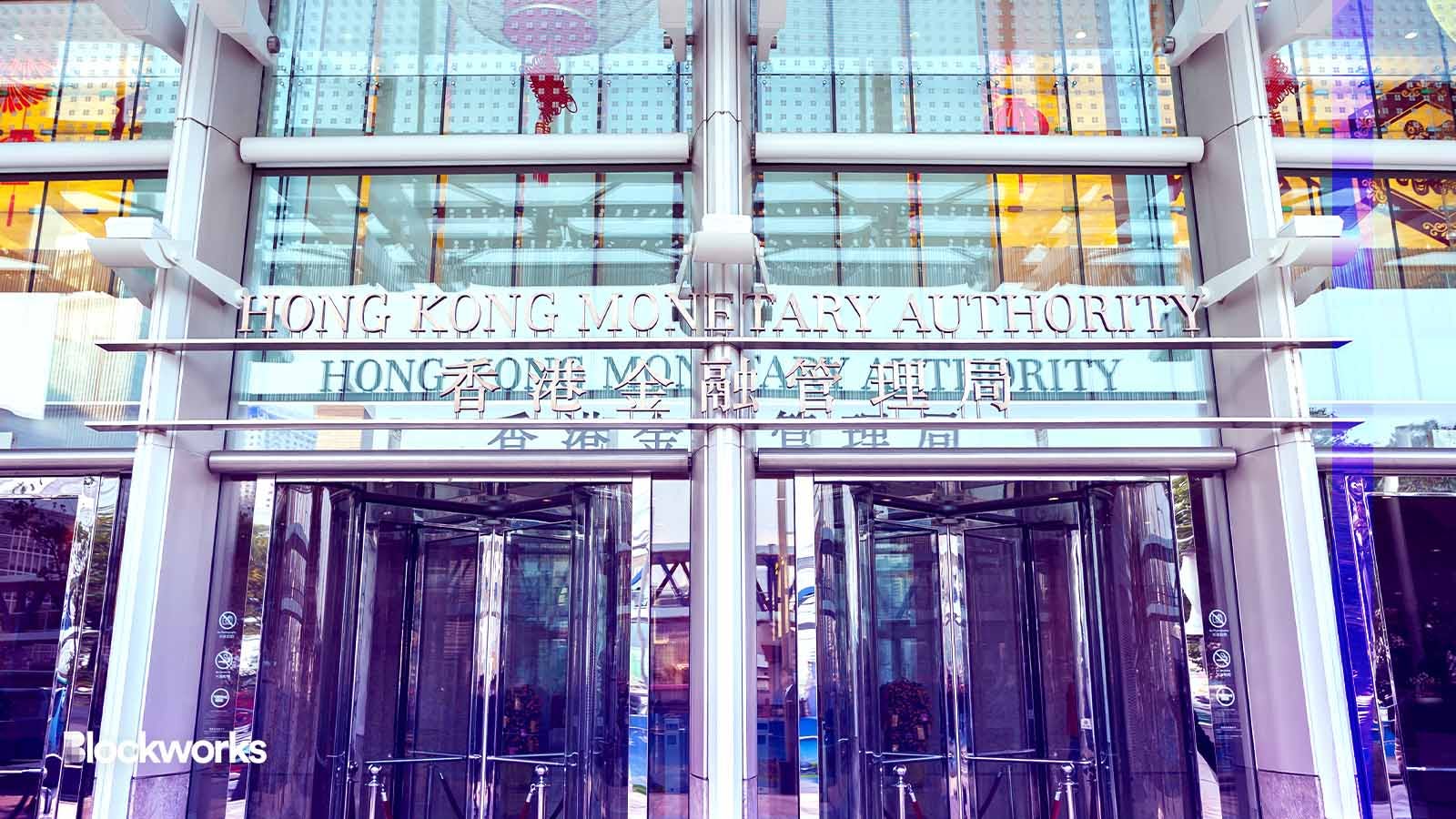Hong Kong regulator issues warning against crypto firms parading as ‘banks’
Crypto firms are also not allowed to describe products as “deposits”

StrippedPixel.com/Shutterstock modified by Blockworks
The Hong Kong Monetary Authority issued a warning against crypto firms using the word “bank.”
On Friday, the HKMA warned that certain crypto firms are inappropriately using the term “bank” to describe their service offerings. The regulator said that by presenting themselves as banks without the necessary authorization, these firms are misleading the public into thinking they are regulated by the HKMA, which is not accurate.
“Under the Banking Ordinance, only licensed banks, restricted license banks and deposit-taking companies, which have been granted a license by the HKMA can carry out banking or deposit-taking business in Hong Kong,” the regulator said.
Additionally, crypto firms cannot describe their services as being akin to banking services or say that customers can open “banking accounts” or describe their products as “deposits.”
The warning comes after the Hong Kong Securities and Futures Commission (SFC) called out a virtual asset trading platform (VATP) called JPEX for appearing to have “arrangements involving virtual assets such as virtual asset ‘deposits,’ ‘savings’ or ‘earnings’ which are not allowed under the SFC’s regulatory regime for VATPs.”
Additionally, the SFC called JPEX out for promoting itself as a licensed entity when it has not applied for or been formerly licensed as a VATP.
In August, the SFC issued a warning focused on unlicensed crypto platforms engaging in “improper practices.”
VATPs claiming that they applied for licenses “may not be in compliance with the legal and regulatory requirements under the new regime,” the SFC warned.
Similar to calling a firm a bank when it is not authorized to do so, it is a crime for crypto platforms to market themselves as licensed when it’s not.
Hong Kong opened the doors for crypto companies earlier this year as it took multiple steps to be more crypto-friendly, including launching a CBDC trial.
Get the news in your inbox. Explore Blockworks newsletters:
- The Breakdown: Decoding crypto and the markets. Daily.
- 0xResearch: Alpha in your inbox. Think like an analyst.






